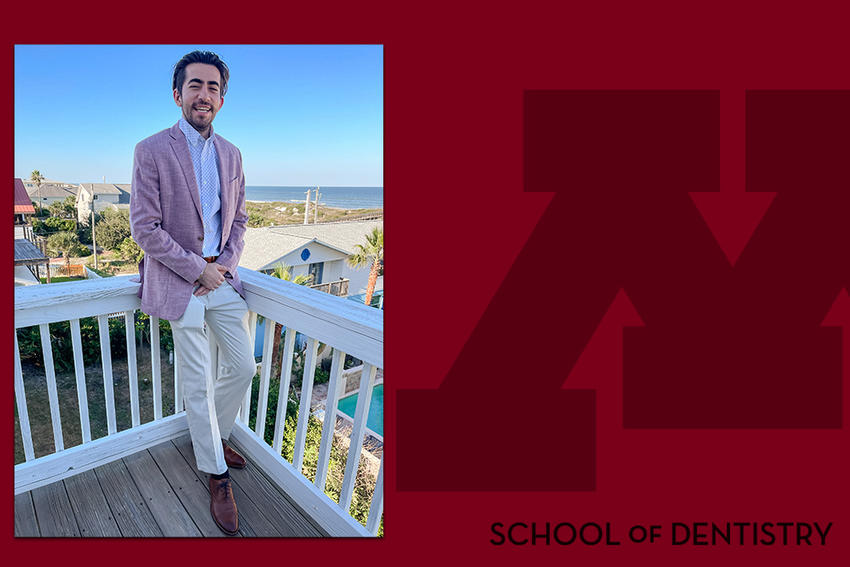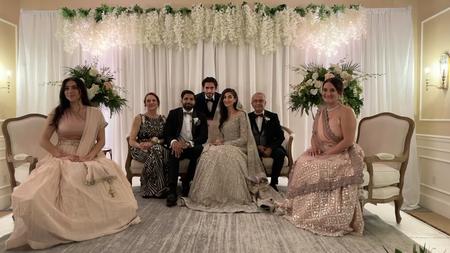Bridging two worlds

Alex Tabatabai, DDS ’25, did not have a typical start to life—but all of his experiences have informed the person he is today.
Tabatabai was born deaf—a fact his family did not discover until he was two years old. He would not speak his first words until age four. And yet, today, he is a dental student with a passion for music and technology.
Tabatabai credits his experiences growing up with instilling in him a love for technology and music. He understood computers before he could speak. “I was amazed at how technology had an impact on changing the way we live,” he said.
That passion deepened when he received his cochlear implant, expanding his ability to process frequencies. “It helped increase my language and sound experience,” he said. “I was introduced to a new realm of sounds.”
Tabatabai began producing music in college, delving into music theory and production. “As I listened to albums or singles, I commented on every instrument used and how the sounds blended together,” he said. “It drove my friends crazy, but I couldn’t help myself. Music is now a big part of my life.”
Tabatabai’s culture is also a large part of his life. His father immigrated to the United States from Iran when he was 21. “He brought his culture to the family, and because of that, I started to view the world from a different lens and appreciate other cultures more,” he said. A second-generation Irani-American, Tabatabai saw firsthand the ways different cultures approach disease.
“For example, a long-standing Iranian tradition adamantly declares that eating pigeon eggs will cure deafness,” he explained. “In my case, it didn’t work, but that didn’t change the mind of anyone from my community.”
That experience taught him the value of cultural traditions within a community, as well as giving him insight into the lack of understanding of and access to medical care—something that informs how he practices dentistry. And both his deafness and his culture turned Tabatabai toward the career he is now pursuing.
“Lip reading as a deaf child led me to pay careful attention to the teeth of others, eventually leading me to the field of dentistry,” he said. “My family and cultural traditions led me to appreciate diversity, and gave me the tools to effectively counsel, educate and treat patients from different backgrounds and ethnicities.”
Get to know Tabatabai.
